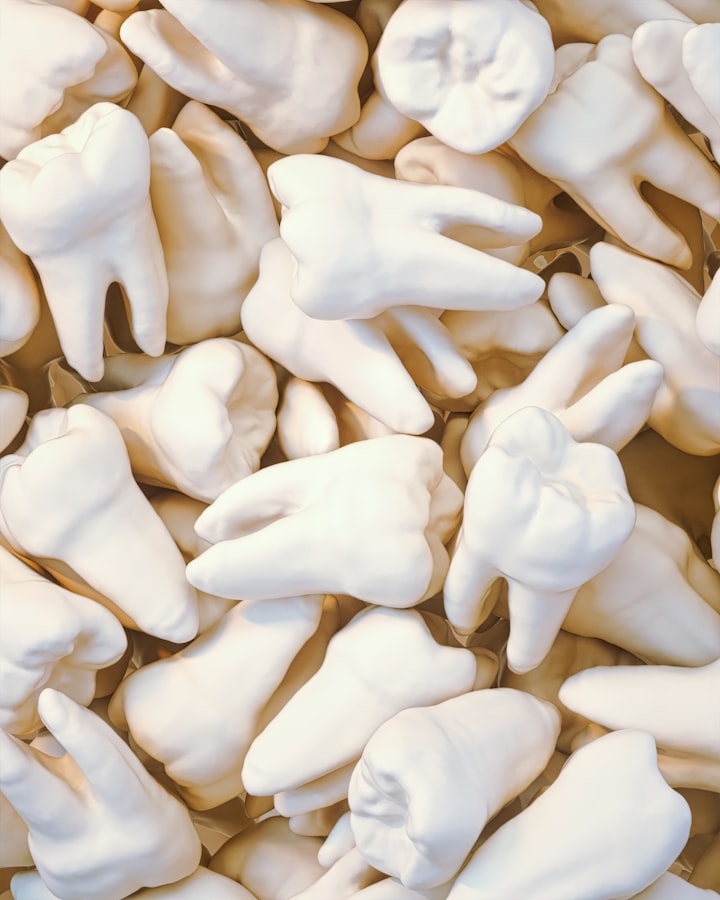How to Whiten Teeth? All You Need to Know Before You Start
How to Whiten Teeth? All You Need to Know Before You Start

A bright and white smile is a desirable feature that many people strive for. It is no surprise that teeth whitening has become an increasingly popular cosmetic dental procedure. According to the American Academy of Cosmetic Dentistry (AACD), teeth whitening is the most requested cosmetic dental procedure. However, with so many options available, it can be overwhelming to decide which method is best for you. In this article, we will explore the reasons why people choose to whiten their teeth, the pros and cons of teeth whitening, the benefits of going to a dentist for teeth whitening, the consequences of teeth whitening, and popular at-home teeth whitening methods and their pros and cons.
Reasons to Whiten Teeth and Their Pros and Cons
The most common reason people choose to whiten their teeth is for cosmetic purposes. A bright and white smile can boost self-esteem and confidence. Additionally, some people may choose to whiten their teeth to remove stains caused by tobacco use, coffee, tea, or other food and drinks. However, it is essential to weigh the pros and cons of teeth whitening before making a decision.
According to Dr. Jonathan B. Levine, a renowned cosmetic dentist and the author of "The Teeth Whitening Bible," “There are many benefits to teeth whitening. It can make you look younger, healthier, and more confident. However, teeth whitening can also cause sensitivity, especially if you overuse the products or use them incorrectly.”
The American Dental Association (ADA) also cautions that teeth whitening may not be suitable for everyone, especially those with gum disease, worn enamel, cavities, and exposed roots. Teeth whitening products can also cause harm if used improperly. Therefore, it is essential to consult with a dentist before starting any teeth whitening treatment.
Reasons to Go to a Dentist for Whitening
While there are many over-the-counter teeth whitening products available, consulting with a dentist is the best option for those seeking a safe and effective teeth whitening treatment. Dentists have access to professional-grade whitening products that are not available over the counter. Additionally, they can assess your teeth' health and determine the best whitening method for your needs.
According to Dr. Marc Lazare, a renowned cosmetic dentist and the author of "The Ultimate Guide to Teeth Whitening," “Dentist-supervised teeth whitening is a safe and effective way to achieve a brighter smile. Professional teeth whitening products contain higher concentrations of active ingredients, which can produce better results than over-the-counter products. Additionally, a dentist can ensure that the whitening treatment is tailored to your specific needs and that it does not harm your teeth or gums.”
Consequences to Whitening
Teeth whitening, when done correctly, is generally safe. However, it is important to be aware of the potential consequences of teeth whitening, especially when done without professional supervision. Teeth whitening products can cause tooth sensitivity, gum irritation, and even damage to tooth enamel. Overuse of teeth whitening products can also lead to a translucent, blueish appearance of the teeth.
According to the ADA, “Teeth whitening products may produce temporary sensitivity, and some people may experience tooth discomfort during treatment. Overuse of whitening products can also cause irreversible damage to the teeth and gums.”
At Home Whitening Methods and Their Pros and Cons
There are many at-home teeth whitening methods available, including whitening toothpaste, strips, trays, and DIY treatments. While these products may be convenient, they are not always effective and can cause harm if used improperly.
Whitening toothpaste is the most affordable option, but it is also the least effective. According to Dr. Levine, “Whitening toothpaste can remove surface stains, but it does not change the color of the teeth. Additionally, some whitening toothpaste can be abrasive and damage the tooth enamel.”
Whitening strips and trays are more effective than whitening toothpaste but can be more expensive. According to a study published in the Journal of Clinical and Experimental Dentistry, “Whitening strips can effectively whiten teeth, but they can also cause tooth sensitivity and gum irritation. Whitening trays, when used correctly, can produce better results, but they can also cause tooth sensitivity and irritation.”
DIY teeth whitening treatments, such as using baking soda, hydrogen peroxide, or lemon juice, can be harmful and ineffective. According to the ADA, “DIY teeth whitening treatments can cause harm to the teeth and gums, including enamel erosion, gum irritation, and tooth sensitivity.”
Conclusion
Teeth whitening can be a safe and effective way to achieve a bright and white smile. However, it is important to weigh the pros and cons of teeth whitening and consult with a dentist before starting any treatment. While at-home teeth whitening methods may be convenient, professional teeth whitening treatments supervised by a dentist are the safest and most effective option. Remember to practice good oral hygiene habits, such as brushing twice a day and flossing daily, to maintain a healthy and beautiful smile.
Bibliography:
Levine, Jonathan B. The Teeth Whitening Bible: The Complete Guide to Safe and Effective Teeth Whitening. Wiley, 2019.
Lazare, Marc. The Ultimate Guide to Teeth Whitening: The Only Guide You Need to Achieve a Brighter, Whiter Smile. CreateSpace Independent Publishing Platform, 2018.
American Dental Association. “Teeth Whitening.” MouthHealthy, American Dental Association, 2021.
Najeeb, Sarah, et al. “Effectiveness of Different Types of Tooth Whitening Strips: A Randomized Controlled Trial.” Journal of Clinical and Experimental Dentistry, vol. 9, no. 9, 2017, pp. e1111–e1117., doi:10.4317/jced.54241.






Comments
There are no comments for this story
Be the first to respond and start the conversation.